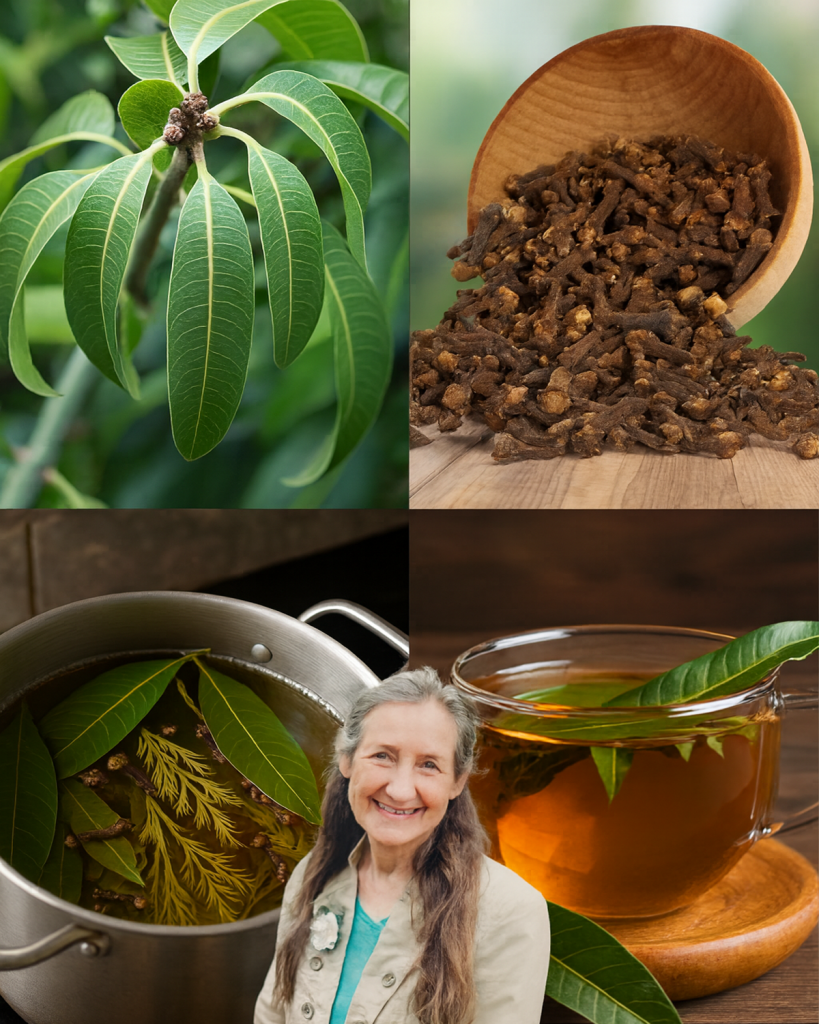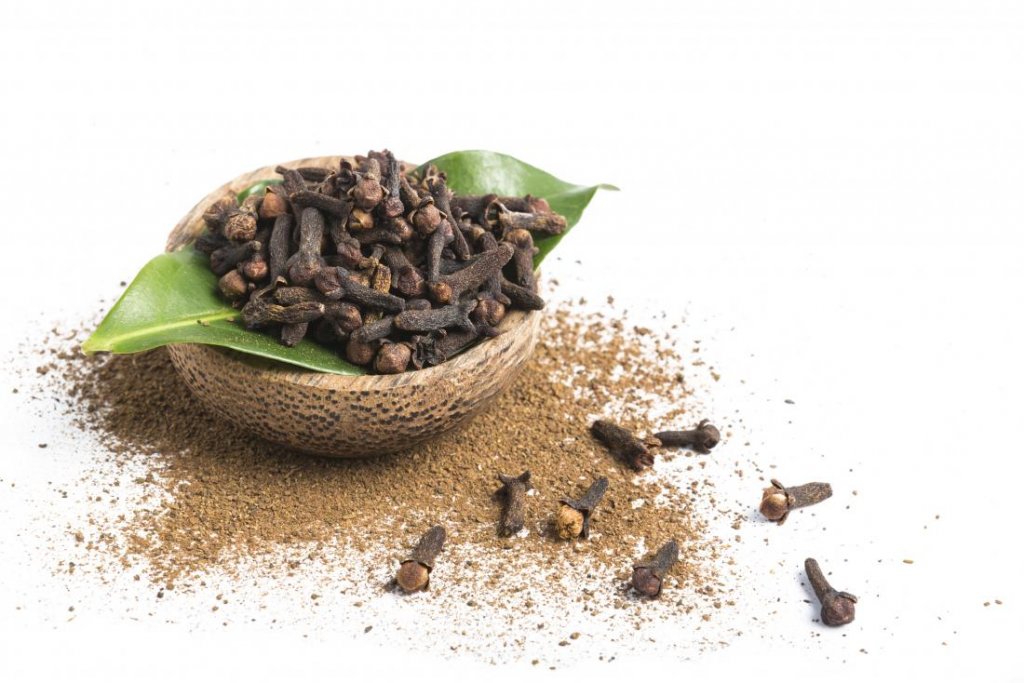Did you know that mango leaves are packed with antioxidants, flavonoids, and vitamins that have been valued in traditional wellness for centuries? While most people enjoy mangoes for their juicy, sweet fruit, few realize the leaves can also be brewed into a nourishing tea. When combined with cloves—an aromatic spice rich in eugenol and essential oils—the result is a flavorful drink that some cultures have cherished for its calming and supportive effects.
On our fanpage, many readers have asked: “How do I prepare mango leaf tea at home?” Others wonder if blending mango leaves with spices like cloves adds to the experience. This article explores those questions in depth. You’ll discover not only how to make mango leaf tea with cloves but also its history, potential wellness benefits, variations, and ways to enjoy it safely. By the end, you’ll know whether this soothing herbal infusion deserves a place in your daily routine.

The Tradition of Mango Leaves and Cloves
Mango Leaves in Traditional Practices
Mango leaves, from the evergreen mango tree (Mangifera indica), have been used in Ayurvedic and folk remedies for centuries. In many cultures, they were brewed into teas believed to help support digestion, maintain balance, and provide a gentle source of plant-based nutrients.
Cloves in Traditional Medicine
Cloves, the dried flower buds of the Syzygium aromaticum tree, were once worth their weight in gold. Known for their warm, spicy-sweet aroma, cloves have long been used in cooking, dental care, and herbal tonics. They are still a common ingredient in teas across Asia, Africa, and the Middle East.
Why Combine Them?
Mango leaves bring earthy, mild notes, while cloves provide bold warmth. Together, they create a tea that is flavorful, aromatic, and deeply soothing. Nutritionally, the blend offers antioxidants, vitamin C, tannins, and polyphenols from mango leaves, along with eugenol and minerals from cloves.

Potential Benefits of Mango Leaf and Clove Tea
Although research is still emerging, here are some of the supportive effects associated with this tea:
- Rich in Antioxidants
Both ingredients contain compounds that may help protect cells from oxidative stress, a factor linked to aging. - Supports Digestive Comfort
Clove has traditionally been used to ease mild bloating or discomfort. Mango leaf tea is also enjoyed as a light digestive tonic. - May Promote Relaxation
The warm aroma of cloves and the earthy taste of mango leaves can create a calming effect, perfect for evening routines. - Supports Oral Freshness
Clove’s antimicrobial properties have made it a classic natural choice for oral hygiene, and a warm tea blend may freshen the breath. - A Naturally Calorie-Free Drink
For those reducing sugar, this tea makes a flavorful substitute for sweetened beverages.
Important Note: These are supportive benefits reported in traditional use. The tea is not a cure or treatment for medical conditions.
How to Make Mango Leaf Tea with Cloves
Making this tea is simple and requires only a few ingredients.
Ingredients
- 6–8 fresh or dried mango leaves (clean and rinsed)
- 3–4 whole cloves
- 2 cups of water
- Optional: honey, lemon, or cinnamon stick for extra flavor

Instructions
- Boil 2 cups of water in a small pot.
- Add mango leaves and cloves.
- Reduce to a simmer and let steep for 8–10 minutes.
- Strain the tea into a cup.
- Add honey or lemon if desired.
Serving Suggestion
Enjoy this tea warm in the morning or evening. You can also chill it in the refrigerator for a refreshing cold version.
Creative Variations to Try
- With Ginger: Add a few slices of fresh ginger for an extra warming kick.
- With Cinnamon: A cinnamon stick enhances the aroma and provides a festive note.
- With Green Tea: Steep a green tea bag alongside the leaves for added antioxidants.
- As Iced Tea: Let it cool and serve over ice with a squeeze of lime.

Practical Tips for Adding It to Your Lifestyle
- Morning Boost: Replace coffee with mango leaf and clove tea for a gentle start to the day.
- After Meals: Drink it warm after dinner to support digestion.
- Stress Relief Ritual: Enjoy it in the evening as a calming habit before bed.
- Travel Companion: Brew a large batch, store in a thermos, and sip throughout the day.
A 7-Day Starter Plan
If you’re curious about how this tea feels in your daily life, try this easy 7-day plan:
Day 1: Brew a small cup in the morning and note the flavor.
Day 2: Add ginger and see how your body responds.
Day 3: Try it cold with lemon in the afternoon.
Day 4: Drink after a meal to notice digestive comfort.
Day 5: Add cinnamon and enjoy it in the evening.
Day 6: Brew double the amount and sip throughout the day.
Day 7: Reflect on whether you’d like to make it a regular part of your lifestyle.
Safety and Precautions
- Use mango leaves only from organic or pesticide-free sources.
- Wash fresh leaves thoroughly before use.
- Do not overconsume; one to two cups a day is reasonable.
- Pregnant or breastfeeding women should consult a healthcare provider first.
- People with chronic health conditions or on medications should seek medical advice before adding new herbal teas.

Common Myths About Mango Leaf Tea
“Mango leaf tea cures all diseases.”
Not true. While it may support wellness, it is not a medical cure.
“The more leaves you use, the stronger the benefits.”
Excessive use may cause bitterness or discomfort. Moderation is key.
“It replaces healthy habits like diet and exercise.”
Tea can complement, but not substitute, a balanced lifestyle.
Conclusion
Mango leaf and clove tea is a unique, flavorful infusion rooted in centuries of tradition. It combines the gentle earthiness of mango leaves with the warm spice of cloves, offering a drink that is soothing, aromatic, and naturally supportive of wellness. Adding it to your daily routine can provide not only variety but also a comforting ritual that encourages mindfulness and balance.
If you’re curious about natural ways to enrich your diet, brewing this simple tea at home is a great place to begin. Explore its flavor, experiment with variations, and see how it fits into your lifestyle.
FAQ
Q1: Can I use fresh mango leaves instead of dried?
Yes, both can be used. Fresh leaves may need longer simmering for flavor.
Q2: How often should I drink mango leaf and clove tea?
One to two cups per day is a practical approach.
Q3: Can I combine it with other herbs?
Yes, ginger, cinnamon, and lemon are popular additions.
Q4: Is it safe for children?
Mild amounts may be safe, but always consult a pediatrician first.
Q5: Does it help with weight loss?
It may support wellness as a low-calorie drink, but it is not a weight-loss solution.
*Disclaimer: This article is for informational purposes only. It does not provide medical advice, diagnosis, or treatment. Always consult a qualified healthcare provider before making changes to your diet or wellness routine.




